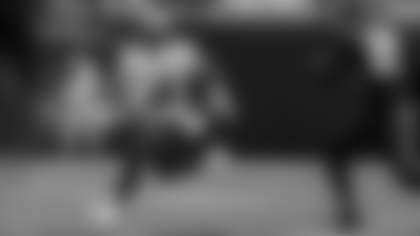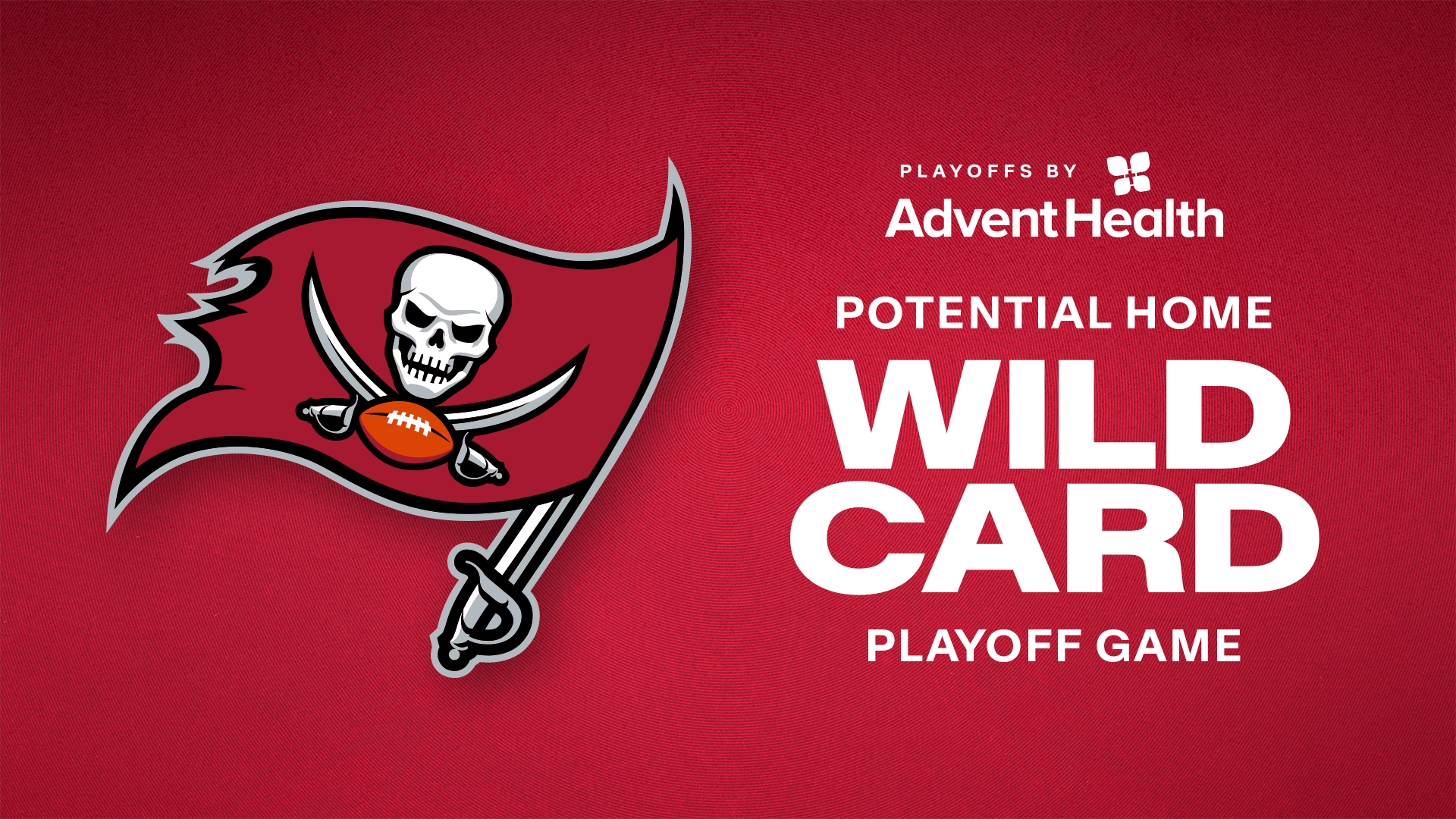LB Jamie Duncan and the Buccaneer defense believe it is essential to get pressure on QB Kurt Warner
For one Sunday, the Tampa Bay Buccaneers weren't too worried about blocking or tackling, punts or returns. Yesterday wasn't a game day for the Bucs, just a travel day in preparation for Monday night's contest in St. Louis, so the team's top concern was probably air traffic control.
Hmm. Come to think of it, the same could be said of tonight.
The Buccaneers will entertain a national audience this evening on ABC's Monday Night Football (click here to follow the action in the Gameday section) against a Rams team that leads the NFL in passing offense. St. Louis' aerial attack has generated 271 yards per game and has been so consistent that it has only fallen below the league average of 180 yards once all season.
And the Rams, no surprise, are scoring 31 points per game and have a league-best 8-1 record. St. Louis throws an average of 37 passes per game and completes 69 percent of them. That is the kind of air traffic the Bucs will be concerned with tonight in St. Louis.
The Carolina Panthers 'allowed' only 156 passing yards to the Rams two weeks ago, but that might have had something to do with the 337 yards the St. Louis ground game was piling up. New Orleans gave the Rams their only loss a month ago but did allow 426 passing yards. The New York Giants held the Rams to a season-low 15 points in mid-October thanks to six sacks of Kurt Warner but still gave up 274 passing yards and still lost by a point.
So, even though there was talk of a 'blueprint' to slow down the Rams after that Giants game – hit QB Kurt Warner was the essential ingredient – the Bucs aren't looking to any past weeks for inspiration.
"There's no blueprint," dismissed Bucs Head Coach Tony Dungy. "You've got to get turnovers and you've got to get pressure on them. They're a team that can move the ball and if you don't force them to turn it over they're going to keep the ball a lot. How you do that, whether it's zone defense or man-to-man or blitz, there are multiple different ways to do that. But you've got to force some turnovers however you can."
Okay, maybe there's no blueprint, then, but that is an essential design element. The Saints forced eight turnovers in their three-point victory. Four of them were interceptions off Warner, who has thrown 13 picks this season. The 1999 NFL MVP is lighting it up again this year, with 2,709 passing yards and 17 touchdowns, but the Bucs hope they can slow him down the same way they did Brett Favre in two earlier games against the Green Bay Packers.
"They're similar," said Dungy of Warner and Favre. "They have a lot of confidence in their arms and their abilities, and a lot of confidence in their receivers. So they throw balls into areas that a lot of quarterbacks wouldn't. A lot of times they come up with them and they're big plays, but when they're a little bit off they can be big plays for you."
To get Warner a little bit off might take some pressure, a la the Giants 'blueprint,' though that is probably true of any quarterback in a system that thrives on timing and quick strikes.
"They rely on timing and they do a great job at it," said Dungy, noting that the Rams run a lot of crossing routes toward the middle of the field, where the Bucs usually try to force opposing receivers anyway. Warner is so sharp with his passing that it is dangerous to give him too much time to pick among those targets.
"He's a very accurate guy," said Dungy. "He's very patient with the football. If you don't make him throw quick, he can do a lot of damage. We know they're going to throw somewhere between 30 and 40 passes and we're going to have to get some pressure on him some of those times."
The Bucs sacked Warner twice last year, both by DT Warren Sapp, in Tampa Bay's 38-35 win in December. In the 1999 NFC Championship Game, won 11-6 by St. Louis, the Bucs didn't get Warner on the ground once, though pressure helped set up three interceptions. The biggest difference in the effectiveness of Warner's passing game on those two days actually may have been the contributions of a running back, the explosive Marshall Faulk. Faulk rushed 17 times for 44 yards and had three receptions for five more yards, without scoring, in that '99 playoff game. Last year, he scored four times while recording 132 combined yards.
"They hit a couple big plays," said Dungy. "We also did a real good job on Marshall Faulk in the game here. Down there, he got some runs, got into the secondary and they used him in the passing game. They got some quick screens going and made some yardage that way. We were pretty good on third down in the game down here. Once we got them in third down we were able to get off the field. Mainly, it was Faulk just had a better game down in Tampa."
Faulk, however, probably preferred the '99 playoff game, since it propelled his team to the Super Bowl. His big day in Tampa failed to avert a damaging late-season loss to the Buccaneers. If Tampa Bay is to disappoint Faulk and his teammates once again this year, it's a good bet they'll have to assert some serious air traffic control tonight in St. Louis.
























